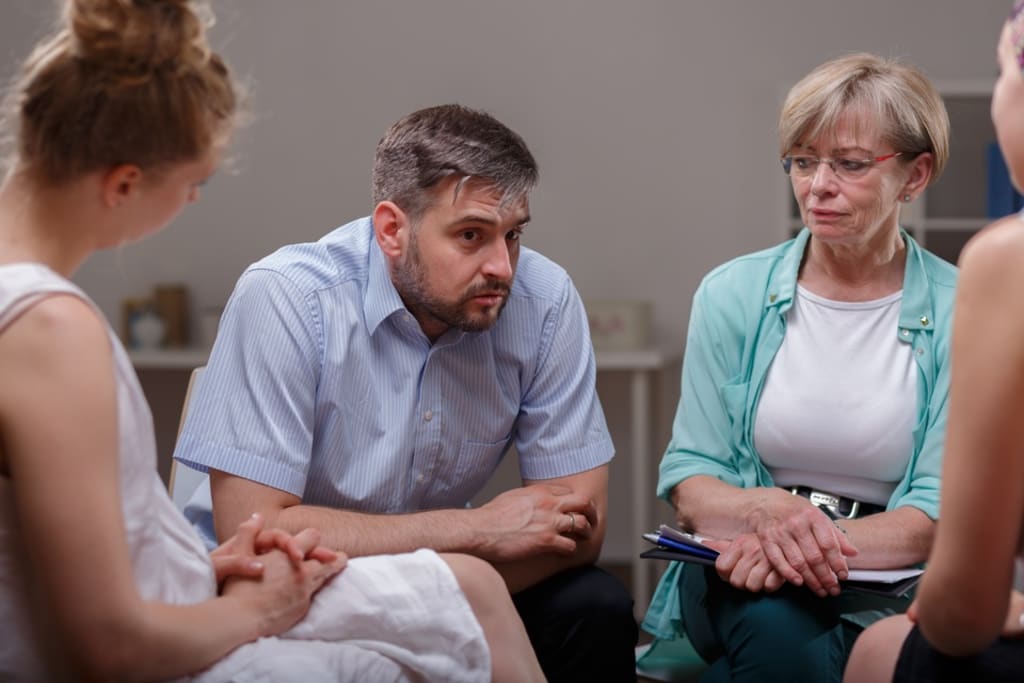Understanding the Effects of Addiction on the Family
Addicts need help and their family can be the best support system available.

Addiction is a disease that has a profound effect on everyone that it touches. No one wakes up one day and decides that they want to become addicted to drugs or alcohol. It’s a complex combination of genetics and life experiences that will, ultimately, lead someone to become dependent on substances.
People use drugs for a variety of different reasons. Sometimes it starts out as recreational use, and snowballs into something that the person just can’t control. Sometimes addicts use drugs to numb themselves from past experiences too painful to face. Regardless of the ‘why,’ it’s no secret that addiction has a profound and lasting effect on, not just the addict, but all of the people around them.
There are many times that an addict becomes so focused on themselves that they completely forget about the people around them, negatively affected by their drug use. Addicts completely lose touch with who they were, and the only thing that they care about is their next fix. Both the family and the addict suffer. Let’s look at some of the ways addict can find support through their family.
The Family - Addiction is a Group Disease
When one person becomes severely addicted to drugs and alcohol, the disease spreads all the way through the family. Everybody that loves and depends on them will face some sort of consequence. This is incredibly sad when the addict has children. These are really the people that suffer the most, because they’re incapable of understanding exactly what addiction is. All kids see is a parent that no longer shows up for them, focuses on them, or loves them as much as they love their addiction.
The key to reclaiming hope is education and group treatment. Children may be too young to understand exactly what it means to have an addiction, but this doesn’t mean that they’re losing a parent. An aware addict is often working toward sobriety, and they are much more likely to accomplish this if the entire family is involved in their recovery. As much as this is a group disease, addiction is also a group effort. It’s one of the worst and best parts about this disease. While addiction harms everybody that the addict cares about and that cares about the addict, it also allows everyone to come together in a supportive display of strength and healing potential.
Family members need to unite in order to stop enabling the addict, and allowing them to use family resources to get drugs. The person suffering from the disease needs to experience the full consequences of their actions, and finally understand what it means to lose out on life. It’s only at this point that many people truly decide that they need to seek help. When they reach the single moment of clarity, it’s imperative that they get into some sort of treatment program as quickly as possible. Whether it’s traditional rehab, group centered meetings like AA, or alternative treatments like NAD, or Ibogaine therapy, finding a treatment method that works is what is important.
Once the addict agrees to get treatment, the rest of the family might also consider group therapy. This helps everyone to recover from the emotional damage done, and shows them what they can do to be more supportive of the addict themselves.

The Addict - Approaching Your Family
Hiding is a terrible way to live. However, addicts are constantly trying to keep things from their family, and trying to stop people from finding out about their addiction. This can be extremely destructive. The stress and the constant fear of discovery make it almost impossible to live a healthy life. Addiction is a disease that dominates every waking moment, even when the addict knows what they’re doing is wrong.
It can feel like an absolutely hopeless place to be. For an addict, getting the courage to tell their family and face the consequences can be almost impossible. Fear is ultimately what keeps them from being honest. What many addicts need to realize is that honesty is the greatest tool they have in their arsenal. The best thing they can do for themselves and for their family is to finally tell someone that they love and trust that they have a problem.
Admitting that there is a problem is the first step to solving it. It’s also important to seek out a support system created out of people who can be trusted. Even if the addiction has severely damaged relationships, this doesn’t mean that the people around them don’t love them or care. As an addict, one of the most important things to realize is that every addict is worthy of love. An addict is worth more than their addiction, and life is valuable.
Learning to accept help is something that many people spend a lifetime trying to do. An addict must learn to do it much faster, and be prepared to accept their inability to solve this problem on their own. When they finally decide that it’s time to tell their family that they have a drug problem, they must take action quickly.
Another day might be too late. Asking for help will let loved ones in and them to help.
Change Your Life
The feeling that comes with this type of honesty is absolutely life changing. An addict needs to understand a strong support system will make things much easier—and that there are people around them that care. The key is to finally learn to talk to someone. Put trust in those around who care, and choose life over drugs and alcohol. If your or your loved one is suffering from addiction, find professional help. There are treatment options out there that will work for you. It’s also important that you understand that one relapse or failure does not undo your progress. Going backwards is a natural part of going forward, and this is doubly true when fighting an addiction. There is hope, you just have to reach out and take it.
About the Creator
Aeden Smith-Ahearn
Former heroin addict. Now I am proponent of alternative medicines, new-wave treatments, research, and education on psychedelic compounds for addiction, depression, and other disorders.






Comments
There are no comments for this story
Be the first to respond and start the conversation.